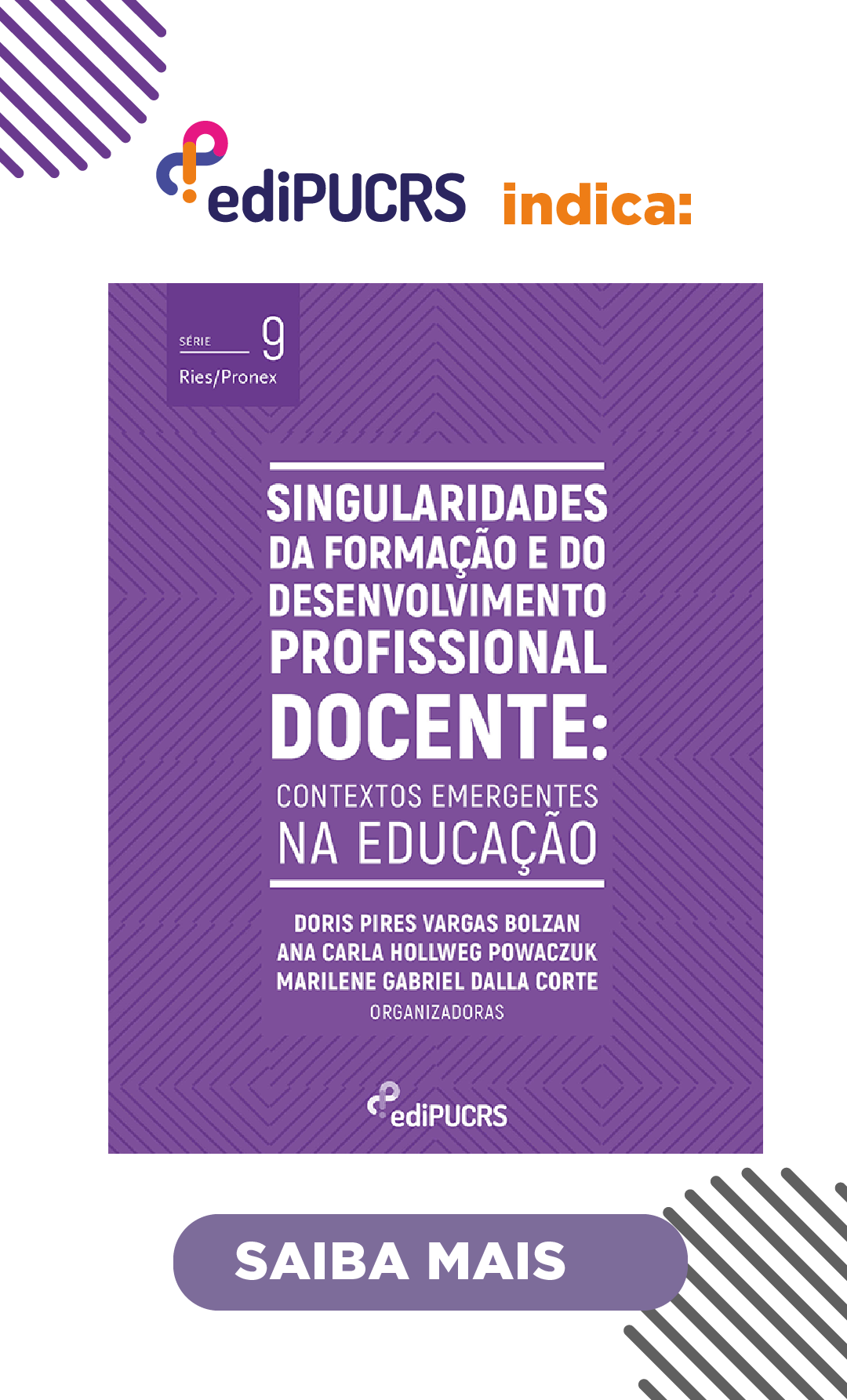The ludic teaching of Portuguese as a second language to deaf students
ominiletical contributions
DOI:
https://doi.org/10.15448/2179-8435.2024.1.44360Keywords:
Education, Portuguese as a second Language, Ludic, Visual Literacy, Omniletical perspectiveAbstract
The following work aims to discuss about ludic activities and visual literacy and how they assist in the process of teaching Portuguese as a second language for mild to moderate deaf students. This discussion starts from the experiences of the first author of this article, active in the teaching and elaboration of activities in a university extension project at UFRJ, through Specialized Educational Assistance in a non-school environment. The methodology used here is qualitative (Minayo, 2001), with a participant observation (Gil, 2008), and as a theoretical reference the Omniletical perspective (Santos, 2013) and contributions from Vygotsky (1998). As a result, it is noted that the use of playfulness and visual literacy, in addition to helping in the acquisition of Portuguese, also gives autonomy and creativity to the student participating in the research. Furthermore, it improved her relationship with work mediators, facilitated the understanding of orthographic rules of the second language and reduced her fear of making mistakes.
Downloads
References
AGUIAR, J. F. Como o lúdico é definido por professores dos anos iniciais?: concepções, definições e indicadores em busca da existência do lúdico. Plures Humanidades, Ribeirão Preto, v. 20, n. 2, p. 247-265, 2019.
BISOL, C. A.; VALENTINI, C. B. Surdez e deficiência auditiva: qual a diferença? Objeto de Aprendizagem Incluir, UCS/FAPERGS, 2011. Disponível em: http://www.grupoelri.com.br/Incluir/downloads/OA_SURDEZ_Surdez_X_Def_Audit_Texto.pdf. Acesso em: 17 maio 2022.
BOOTH, T.; AINSCOW, M. Index para inclusão: desenvolvendo a aprendizagem e a participação na escola. 3. ed. Bristol: Centre for Studies on Inclusive Education, 2011.
BRASIL. Lei nº 10.436, de 24 de abril de 2002. Dispõe sobre a Língua Brasileira de Sinais - Libras e dá outras providências. Brasília, DF: Presidência da República, 2002. Disponível em: https://www.planalto.gov.br/ccivil_03/leis/2002/l10436.htm. Acesso em: 2 jul. 2021.
COELHO, J. M. M.; BORGES, F. G. B. Educação linguística e práticas de letramento no ensino de português escrito para surdos: um relato de experiência na educação de jovens e adultos. Educação por Escrito, Porto Alegre, v. 13, n. 1, p. 1-16, 2022. DOI: https://doi.org/10.15448/2179-8435.2022.1.39328
DRAGO, R.; RODRIGUES, P. Contribuições de Vygotsky para o desenvolvimento da criança no processo educativo: algumas reflexões. Revista FACEVV, Vila Velha, n. 3, p. 49-56, 2009.
GALASSO, B.; ESDRAS, D. A escolarização de estudantes surdos no Brasil: educação básica. Rio de Janeiro: INES, 2018.
GIL, A. C. Métodos e técnicas de pesquisa social. 6. ed. São Paulo: Atlas, 2008.
LUKÁCS, G. História da consciência de classe: estudos sobre a dialética marxista. São Paulo: Martins Fontes, 2003.
MINAYO, M. C. S. (org.). Pesquisa social: teoria, método e criatividade. 18. ed. Petrópolis: Vozes, 2001.
MORIN, E.; ALMEIDA, M. C.; CARVALHO, E. A. Educação e complexidade: os sete saberes e outros ensaios. 4. ed. São Paulo: Cortez, 2007.
PINHEIRO, M.; BATISTA, E. O aluno no centro da aprendizagem: uma discussão a partir de Carl Rogers. Revista Psicologia & Saberes, Maceió, v. 7, n. 8, p. 70-85, 2018.
RIO DE JANEIRO. Plenário Barbosa Lima Sobrinho. Projeto de Lei n. 3.970, de 3 de abril de 2018. Dispõe sobre a presença do professor mediador nas salas de aula de ensino básico regular das escolas públicas do estado do Rio de Janeiro e dá outras providências. Autoria: Deputado Waldeck Carneiro Julianelli. Rio de Janeiro: Assembleia Legislativa do Rio de Janeiro, 2018. Disponível em: http://www3.alerj.rj.gov.br/lotus_notes/default.asp?id=3&url=L3NjcHJvMTUxOS5uc2YvMThjMWRkNjhmOTZiZTNlNzgzMjU2NmVjMDAxOGQ4MzMvY2NhZjYwYjJkZDk2NThkYzgzMjU4MjY2MDA2N2ZjOTk/T3BlbkRvY3VtZW50. Acesso em: 2 maio 2024.
SANTAELLA, L. Leitura de imagens. São Paulo: Melhoramentos, 2012.
SANTOS, M. P. Dialogando sobre inclusão em educação: contando casos (e descasos). Curitiba: CRV, 2013.
SANTOS, M. P. O papel do ensino superior na proposta de uma educação inclusiva. Revista da Faculdade de Educação da UFF, Niterói, n. 7, p. 78-91, 2003.
SILVA, G. M. Parâmetros da libras. Minas Gerais: Universidade Federal de Minas Gerais, 2011. Disponível em: http://www.letras.ufmg.br/padrao_cms/documentos/eventos/ dialogosdeinclusao/Parametros_da_Libras.pdf. Acesso em: 20 ago. 2022.
SILVA, V. A importância do lúdico para o ensino-aprendizagem de alunos surdos. Revista Somma, Teresina, v. 2, n. 2, p. 47-57, 2016. DOI: https://doi.org/10.51361/somma.v2i2.45
VYGOTSKY, L. S. A formação social da mente. 6. ed. São Paulo: Martins Fontes, 1998
Downloads
Published
How to Cite
Issue
Section
License
Copyright (c) 2024 Educação Por Escrito

This work is licensed under a Creative Commons Attribution 4.0 International License.





